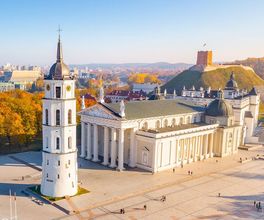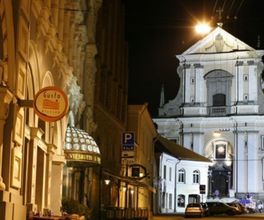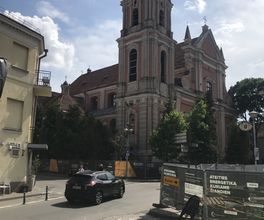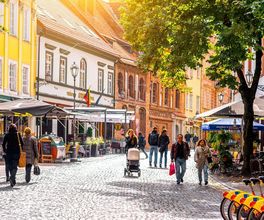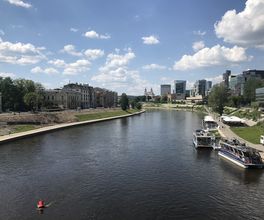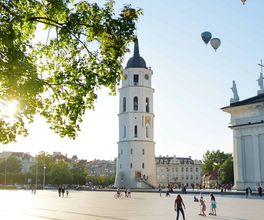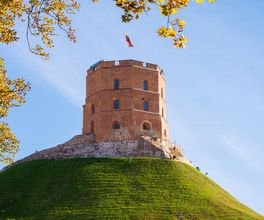


About this experience
Lithuania is the last country in Europe to have adopted Christianity. On the one hand, such a late change of religion marked social lag, on the other hand - it determined the uniqueness of the land, the 'conservation' of which led to the consolidation of a single state, helped preserve national customs and language, closest to the common Indo-European roots. During a walk through the historic center of Vilnius, you will learn how Lithuania resisted the forced Christianization by the Teutonic Knights, how the pagan capital changed, and how the late arrival of Christianity influenced the past and present of Lithuania.
Program
- The heart of Vilnius - the Cathedral on Gediminas Square. Without exaggeration, this is the center of all medieval and present-day Lithuania.
- The square itself stretches at the foot of the majestic mountain, crowned by the Gediminas Tower - the Grand Duke of Lithuania and the founder of the capital city. In pagan times, the square and its surroundings were a sacred grove - Sventaragis, and on the site of the Catholic Cathedral stood a pagan sanctuary, occupying a quarter of the present building. North of the sanctuary, the great dukes Gediminas and his sons Algirdas and Kęstutis were posthumously burned with great honors on huge bonfires. And from the castle on the mountain, the once mighty pagan state was ruled.
- To the south of the Cathedral leads the oldest street Pilies - the axis of the old town. The left side of the axis was occupied by a settlement of Russian merchants, while the right side was inhabited by German traders and craftsmen. Gradually adorned with Gothic, Renaissance, baroque civil buildings and cult temples, the axis became the present-day old town. In turn, surrounded by new architecture, the city transformed from a pagan capital into modern Vilnius.
As a result, you will understand the historical and contemporary significance of the late Christianization of Lithuania, which will appear before you in a completely new light - as a strong state and a unique guardian of national values.
